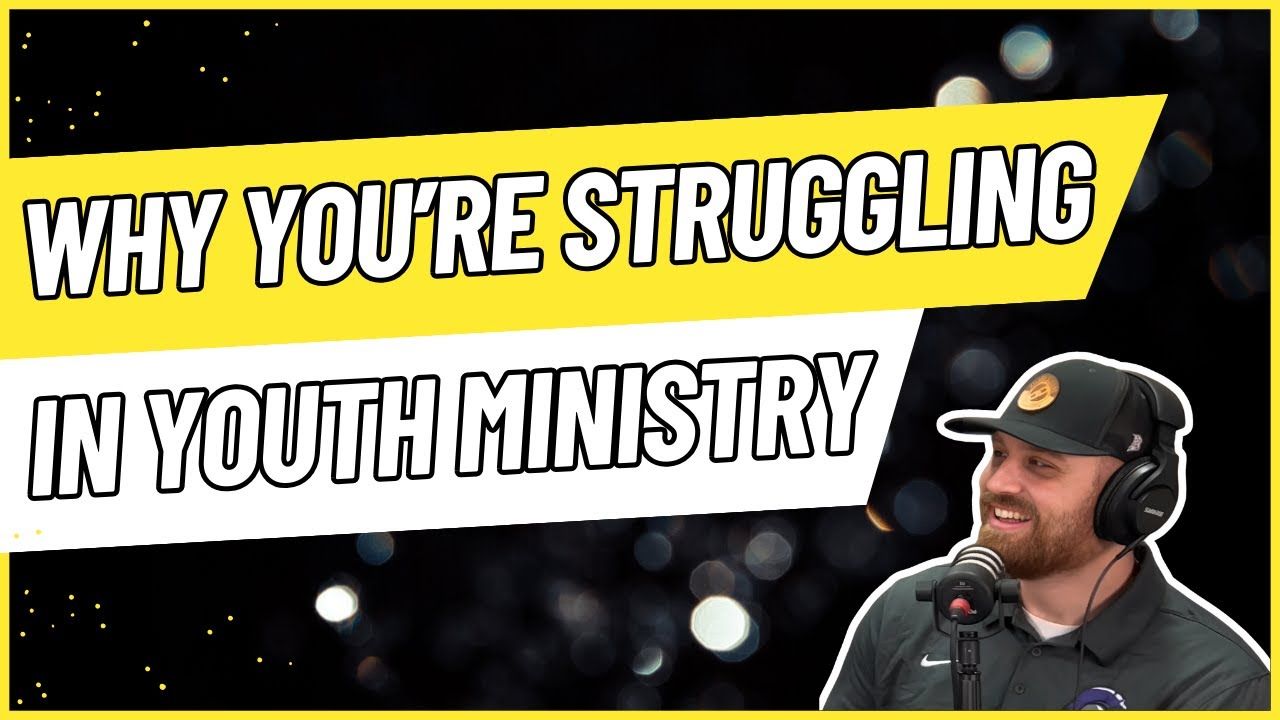The Shocking Porn Insights Every Youth Pastor Needs to Know | Beyond The Youth Room Podcast • Ep 79
Keeping Upperclassmen Engaged: Beyond Pizza and Games
Check out the podcast
here!
Welcome to the Beyond Youth Room blog! Today, we're diving into a crucial topic for youth pastors: how to keep your upperclassmen, your juniors and seniors, actively engaged in your youth ministry. My name is Ryne, and this is a conversation that Keith and I have been having, especially as the school year winds down and motivation can wane.
We know the reality. These older students face increasing responsibilities, from jobs to college applications, and their priorities can shift. It's easy to get frustrated when you see participation dip, but we need to approach this with understanding and intentionality.
The 10K in May Challenge: Re-energizing Your Ministry
Before we dive into strategies for upperclassmen, we have an exciting initiative we're launching in May – the 10K in May Challenge. We want to galvanize our student ministries to have 10,000 gospel conversations!
We've done the legwork for you. Simply click the link below and sign up. Tell us how many students will participate and how many bracelets you need. We'll ship you a FREE kit for each student, including:
- A training card on how to share the gospel using the GOSPEL acronym (Dare to Share His Life in Six Words).
- Cool ideas for initiating gospel conversations.
- A bracelet with 10 beads to track conversations.
- Finished silicone "completion" bracelets as a reminder of their participation.
This is a fantastic way to re-energize your youth ministry during a time that can often feel like a lull after Easter. Let's aim for 1,000 students committing to 10 conversations each!
Now, back to keeping those upperclassmen engaged. Here are five key strategies:
1. Understand Reality: It's Not Always About Youth Group
This might sound heretical in youth pastor circles, but sometimes the best place for a junior or senior to be isn't alwaysyouth group. Their responsibilities increase, and their priorities evolve. A student working to save for college or taking on more family responsibilities might have legitimate reasons for not attending every event.
This doesn't mean they're not growing in their faith. Our focus should shift from simply attendance to how they are living out their faith in their current context. Ask them: "How have you been living out your faith lately?" This opens the door for conversations beyond youth group walls. Understand that engagement might look different for this age group.
2. Build Relationships Starting in Sixth Grade: People Keep People
Programs might draw students in, but it's relationships that keep them connected. Invest in building strong relationships with students from the moment they enter your ministry. Encourage peer-to-peer connections.
We've seen the power of this firsthand. Our seniors are genuinely friends who hang out outside of youth group. They hold each other accountable and will likely continue to support each other even after graduation. You can't manufacture this; it takes time and consistent effort in fostering a relational environment from their younger years in the ministry.
3. Focus on Their Ownership of the Gospel, Not Ownership of the Program
While involving upperclassmen in running programs (welcoming, setting up, etc.) can be helpful, their deeper engagement comes from owning the mission of the gospel. We want them to see the youth group not just as an event they attend but as a vehicle for growing God's kingdom.
Equip them to be ambassadors for Christ. When they understand their role in making disciples, their motivation transcends the weekly program schedule. This ownership of the gospel is relevant whether they are a sixth grader or a senior, and it's a foundation that will serve them well in college and beyond, regardless of the campus ministry strategy.
4. Create Opportunities for Relevant Discipleship: Answer the Questions They're Asking
A twelfth grader's questions and concerns are different from a sixth grader's. The worst thing you can do is consistently answer questions they've outgrown or aren't currently facing.
Provide opportunities, whether in large group settings or small groups, for deeper discussions on topics relevant to their stage of life. For example, splitting our middle and high school groups allowed us to have more mature conversations about God's design for sex and intimacy with the older students, leading to greater engagement and openness.
Don't be afraid to ask your juniors and seniors what's on their minds and tailor discipleship opportunities accordingly. Avoid repeating the same introductory series year after year if you have students who have been in your ministry for a long time. Honor their growth and maturity.
5. Celebrate What You Want to Replicate: Highlight Kingdom Impact
Underclassmen are always watching how you treat and celebrate your older students. What are you highlighting? Often, we focus on behavioral issues. Instead, intentionally celebrate students who are living out their faith, sharing the gospel, and making a positive impact.
Share stories of gospel conversations (the good, the bad, and the ugly) in your youth ministry gatherings. This shows everyone what you value and encourages others to step out in faith.
Consider creating special traditions for your graduating class. For example, our "last night of summer camp" tradition, where juniors and seniors stay up late for a meaningful conversation and affirmation, has been incredibly impactful. It communicates value and creates a lasting memory. Similarly, a special senior dinner or a unique senior trip can be powerful ways to celebrate their journey and inspire younger students.
Conclusion
Keeping upperclassmen engaged requires a shift in perspective. It's not just about keeping numbers up; it's about equipping them to own their faith and impact the world around them. By understanding their reality, fostering deep relationships, emphasizing gospel ownership, providing relevant discipleship, and celebrating kingdom impact, you can continue to meaningfully invest in your juniors and seniors, even as they prepare to move beyond the youth room.

Why Every Youth Pastor Needs a Mentor (And How to Find One) | Beyond the Youth Room Podcast • Ep. 68
4445 Brookfield Corporate Drive Suite B
Chantilly, VA 20151
Federal EIN 54-1904627
Phone: (571) 393-1844
Email: info@edgeclub.org










